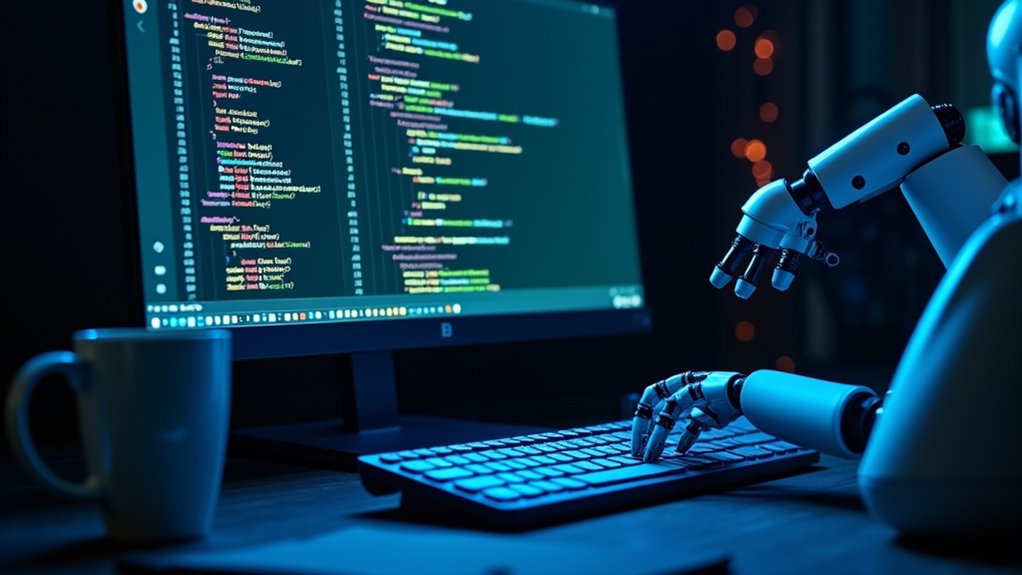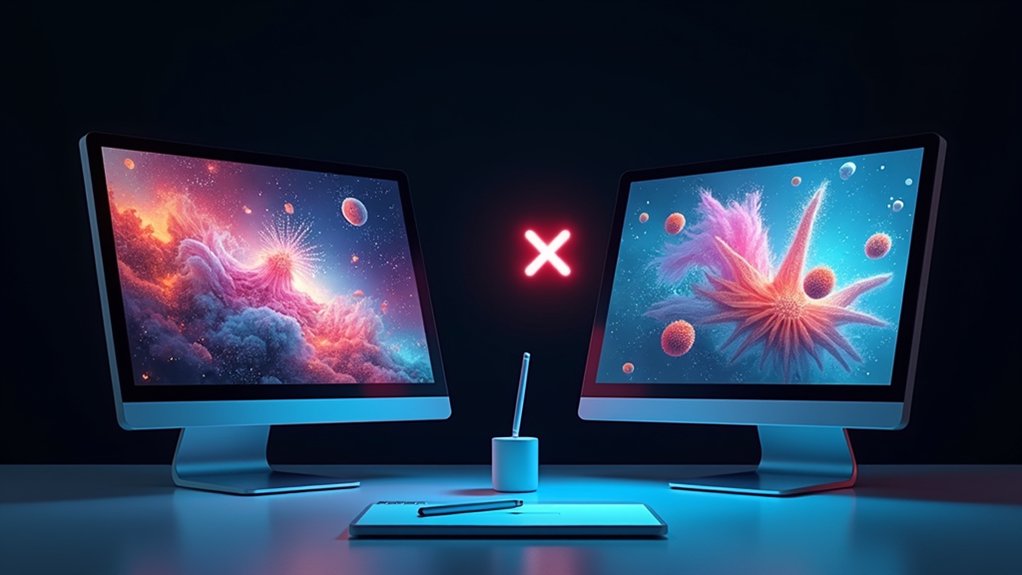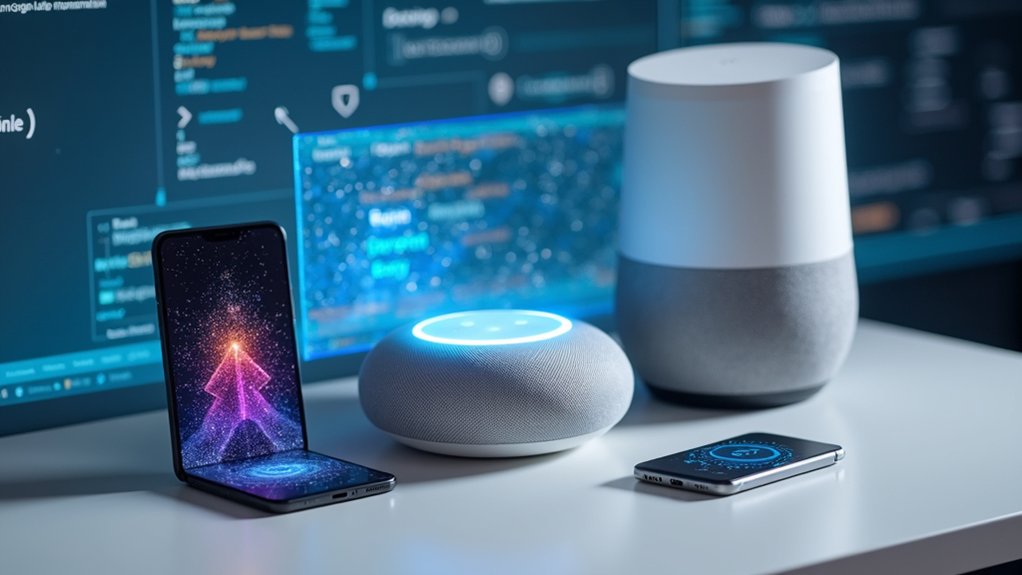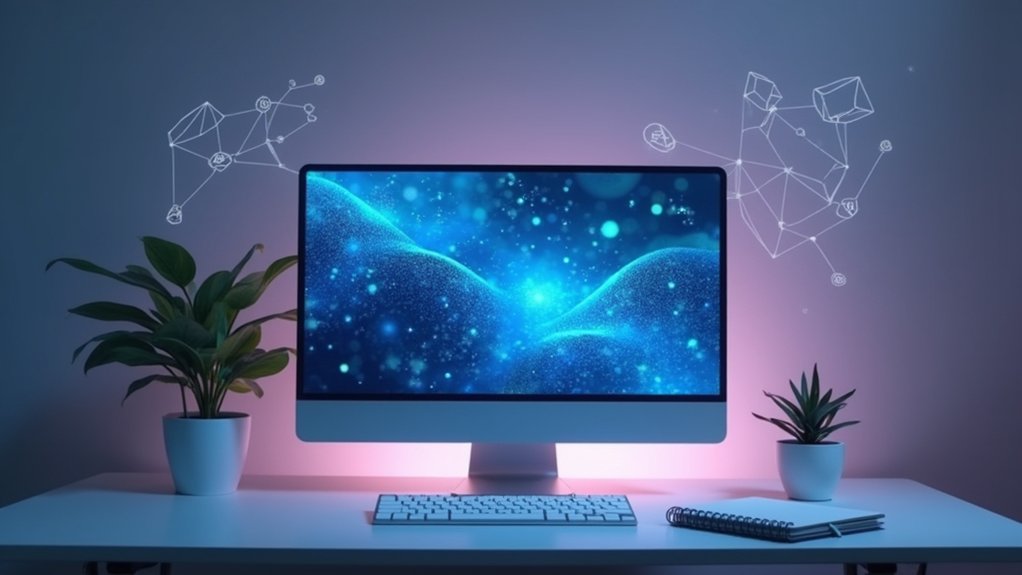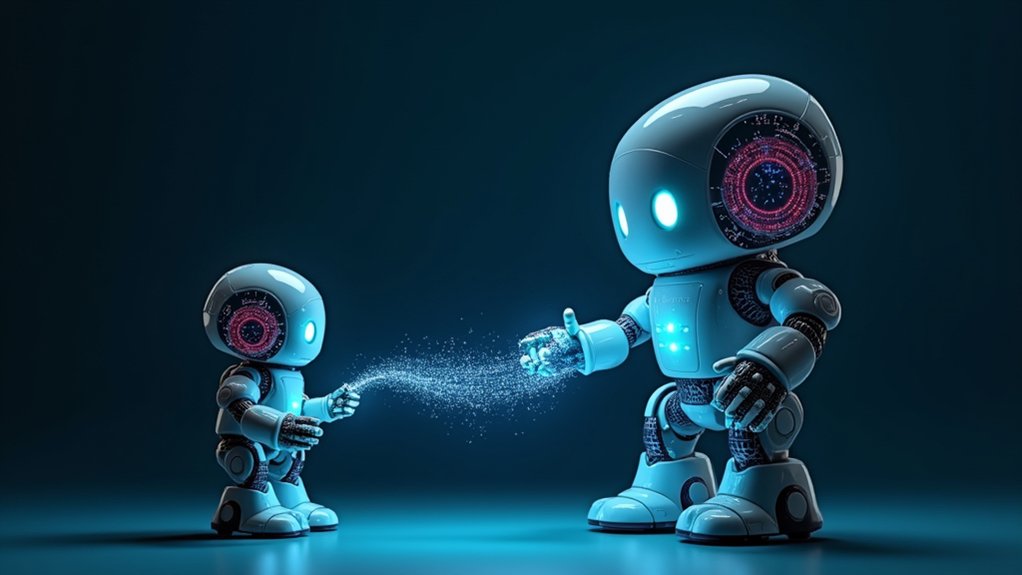AI-generated code looks similar to human-written code with standard programming elements like functions, loops, and variables. It typically includes helpful comments and can efficiently perform tasks like string reversal. The quality varies depending on the AI system used. While AI code excels at basic patterns and can save developers up to 30% of coding time, it may contain logical errors that require human review. More details reveal how AI transforms programming practices.
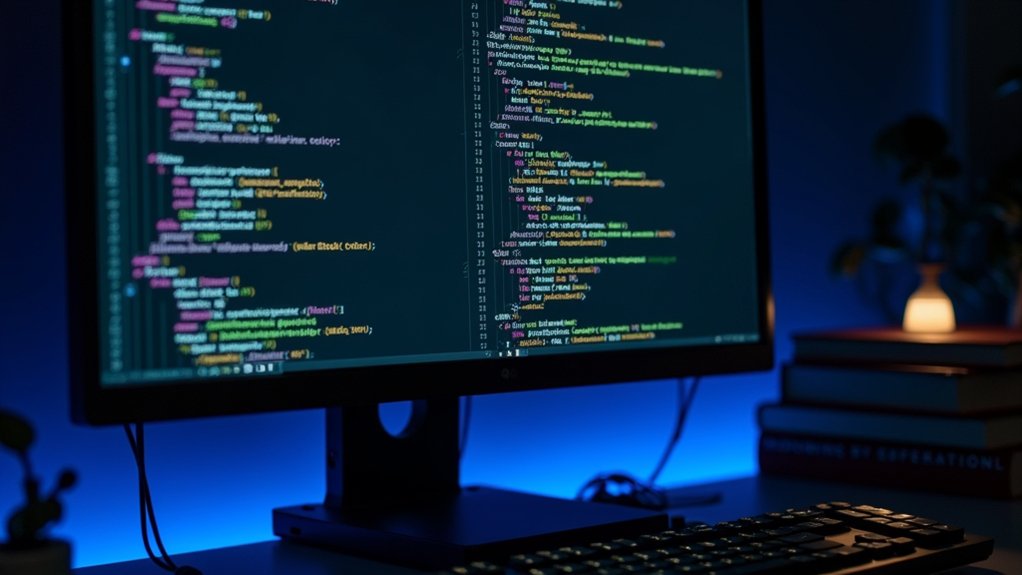
As technology continues to evolve, AI-generated code is becoming increasingly common in software development. This computer-made code often looks remarkably similar to what human programmers write. It contains the same building blocks: function definitions, loops, variables, and conditional statements that follow standard programming rules.
When examining AI code, you'll typically notice it includes helpful comments explaining what different parts do. These comments help human programmers understand the code's purpose. The quality of AI code varies depending on which AI system created it and what data it learned from.
AI creates code using several methods. Large language models trained on millions of code examples can generate new programs. These systems use complex neural networks and something called "transformer architectures" to understand the context of code and produce appropriate solutions.
AI's coding magic comes from massive datasets and neural networks that understand context and generate solutions.
Today's AI excels at writing basic code patterns, completing unfinished code segments, and turning plain English descriptions into working programs. It can efficiently reverse strings using extended slice syntax while maintaining readability for developers. It can even suggest improvements for existing code and create tests to check if programs work correctly. Similar to how AI enhances medical diagnostics through advanced imaging analysis, it can analyze existing code to identify patterns and potential optimizations. AI code generation tools have shown impressive productivity gains, with developers saving up to 30% of coding time when using these assistants.
However, AI-generated code isn't perfect. While it might look correct at first glance, it can contain logical errors. It struggles with complex problems and often needs human review. AI might accidentally create security problems or bugs in the code it produces.
Several popular tools now offer AI coding assistance. GitHub Copilot, OpenAI Codex, and Amazon CodeWhisperer help programmers by suggesting code as they work. These tools perform better with some programming languages than others. Python and JavaScript typically get the best results, while more complex languages like C++ can be challenging for AI.
The rise of AI code also brings up important questions. Who owns code written by AI? Does AI-generated code violate copyrights if the AI learned from open-source projects? And how will these tools affect jobs for human programmers? As AI code becomes more common, society will need to develop guidelines for its responsible use.
Frequently Asked Questions
Can AI Self-Improve Its Code Without Human Intervention?
Current AI systems can partly self-improve their code without humans. They can optimize parameters, fix bugs, and generate better versions of themselves for narrow tasks.
However, full autonomous self-improvement faces major challenges. AI lacks general reasoning abilities and can't understand the broader impact of changes.
Research continues at companies like OpenAI, Google, and DeepMind, but truly independent AI self-improvement remains limited.
How Secure Is Ai-Generated Code Against Hacking Attempts?
AI-generated code faces significant security challenges. Research shows 48% of AI-coded snippets contain vulnerabilities, with large percentages using non-existent packages. IT leaders consider these errors highly significant.
Common issues include hallucinations, susceptibility to adversarial attacks, and replication of existing vulnerabilities from training data. While tools like GitHub Copilot Autofix help fix problems, experts recommend rigorous testing and maintaining human oversight rather than complete reliance on AI.
Does AI Code Follow the Same Design Patterns as Human Code?
AI code can both match and differ from human-created design patterns. It often maintains object-oriented principles and implements common patterns like MVC, dependency injection, and singletons.
However, AI code typically follows a more linear structure with less abstraction and fewer custom classes. It tends to favor built-in functions and libraries, and sometimes prioritizes algorithmic efficiency over readability or modular design that humans might prefer.
Who Owns Intellectual Property Rights for Ai-Generated Code?
Ownership of AI-generated code remains legally unclear.
Most AI companies like OpenAI and Google grant users rights to outputs in their terms of service.
U.S. copyright law typically requires human authorship, while some countries like China have ruled certain AI content copyrightable.
The level of human involvement often determines copyright eligibility.
Globally, policymakers are actively reviewing AI intellectual property frameworks as technology evolves.
Can AI Code Effectively Document Itself for Future Developers?
AI can document code with 70-80% accuracy for simple tasks, but struggles with complex scenarios.
It's generating natural explanations, API documentation, and usage examples while saving developers 30-50% of time on routine documentation tasks.
However, AI-generated documentation may contain incorrect information and often misses nuanced design decisions.
Human review remains necessary to validate the documentation's accuracy before implementation.
